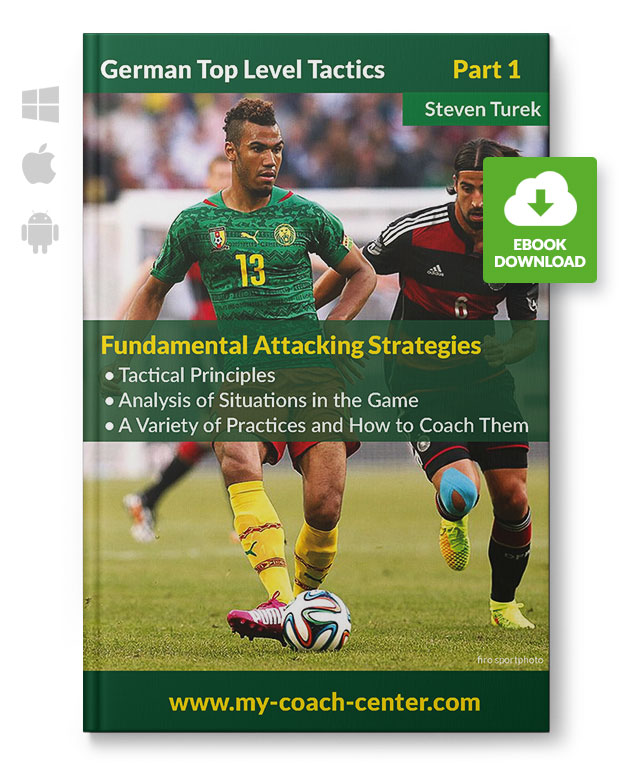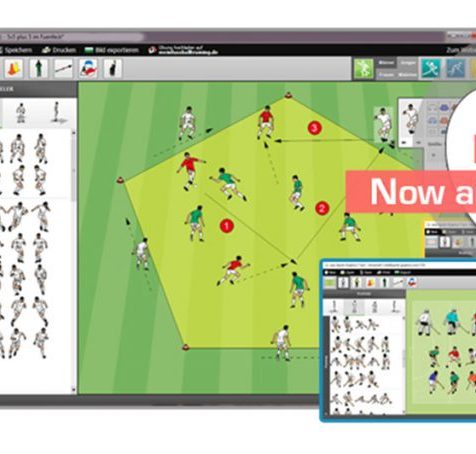In this interview with coach Steven Turek, we explore the path to becoming a soccer coach. Turek shares his lifelong connection with soccer, which led him to become a successful youth coach at pro club Hannover 96 (Germany), a worldwide renowned speaker at clinics and author of various soccer books.
He talks about the steps necessary for those aspiring to become a soccer coach and discusses the challenges new coaches face, the importance of continuous learning, and he offers practical advice for beginners in the coaching world.
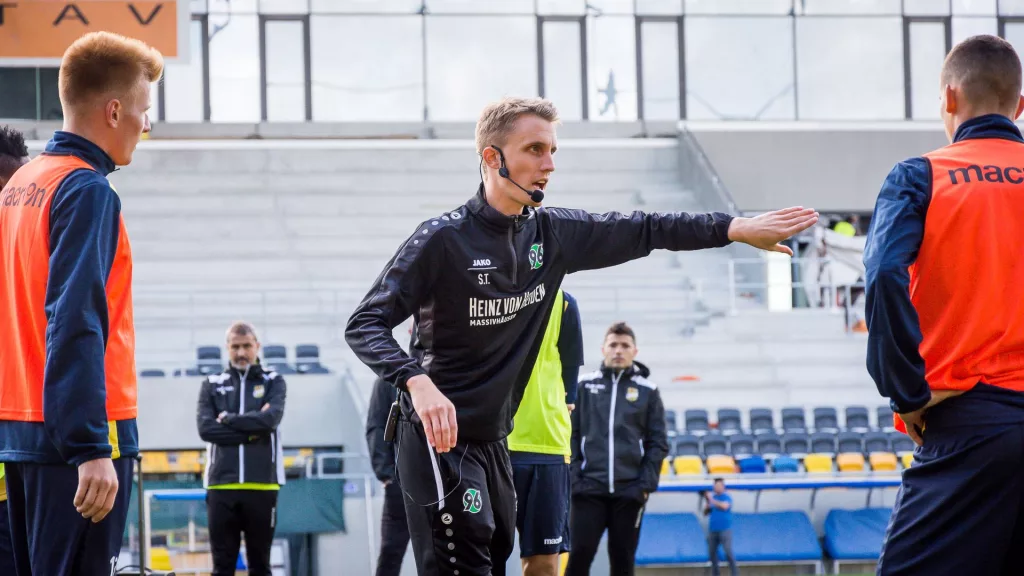
SC: When did your passion for soccer begin?
ST: Finding a single moment for that is extremely difficult. In fact, soccer has been a part of my entire life. I started playing as soon as I could walk. Both of my parents played soccer, and there was always a soccer presence in my surroundings. So, becoming anything else was never really an option for me.
SC: When did you first think about becoming a coach yourself?
ST: It started towards the end of my school days. Back then, a friend and I initiated a soccer group within our school. It was a self-driven effort to continue engaging with soccer. During this time, I discovered that standing in front of groups, delving deeper into content, understanding how to convey these concepts, and, of course, attempting to comprehend the game itself brought me a lot of joy. It was also during this period that the idea first crossed my mind to make a living out of soccer. For someone who hadn’t played professionally, it was a lofty goal at the time. I pursued it relentlessly by studying sport science, coaching small teams in my hometown club, obtaining coaching licenses, and immersing myself in soccer daily.
It’s more about showing initiative and signaling to a club or structure, “Hey, I want to be a coach,” and the path tends to reveal itself.
Steven Turek
SC: Was there an easy entry, a path you followed? (How does one start, do you go to your local club and knock on the door?)
ST: For me, it was surprisingly straightforward. I believe this applies to many people as well. Especially if you play or have played, you are usually involved with a smaller, regional club that is always on the lookout for coaches. Going to the youth coordinator and expressing your interest in coaching is a simple entry point. “Hey, I’d love to be a coach” is usually well-received. I think it’s possible for almost anyone to take their first steps in youth soccer this way. Starting as an assistant coach for kids, gaining experience, and figuring out if coaching is truly for you.
If you don’t have this initial connection, I believe it’s just as easy. It’s more about showing initiative and signaling to a club or structure, “Hey, I want to be a coach,” and the path tends to reveal itself. There are also many soccer camps looking for part-time coaches, providing excellent initial experiences where the focus is on the kids’ enjoyment, offering a solid foundation for aspiring coaches.
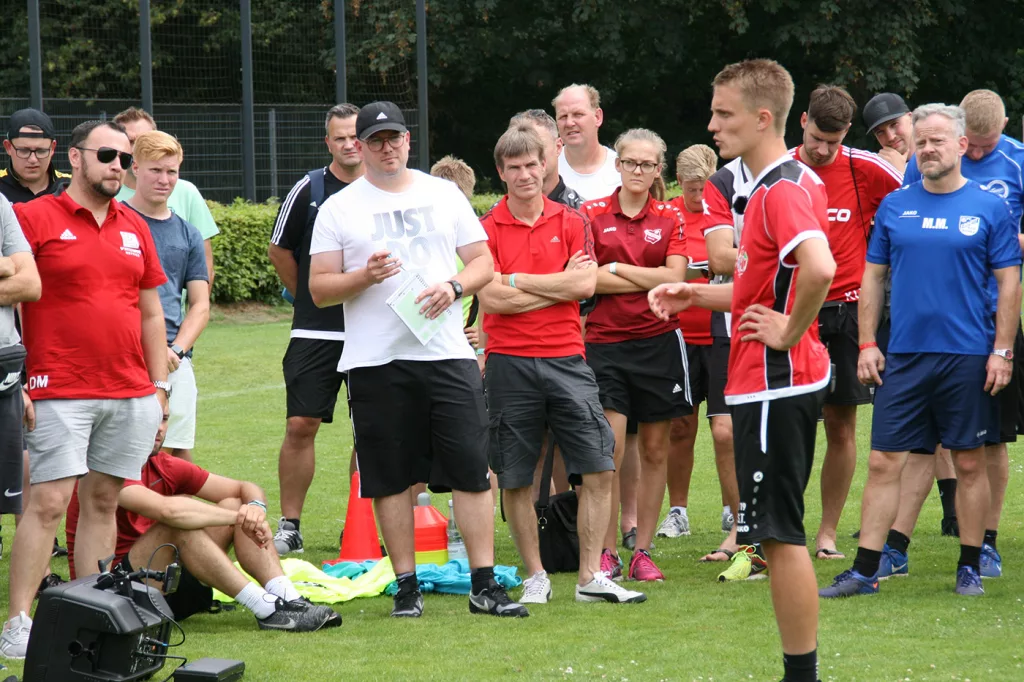
SC: What challenges did you face in the early stages of your coaching career?
ST: The biggest challenge is realizing that you actually know very little. Once you grasp that, things gradually start looking up. I think every coach begins by poring over books, trying out exercises, being more or less satisfied, and seeking new drills. At this stage, you don’t really know how training and performance development work, or how effective team leadership functions. You rely heavily on your experiences as a player. However, once you realize this and understand that you can forge your own path, often through obtaining coaching licenses, finding the right book or having the right conversation at the right time, you slowly start developing your coaching identity.
SC: How do you stay up-to-date as a coach?
ST: Staying up-to-date, in my opinion, is crucial. It’s not about attending a workshop or a coaching course every three years but more about establishing habits and routines that you can regularly incorporate into your daily or weekly schedule. Let’s take an example: attending a coaching course once every ten years. If you don’t engage with soccer otherwise and stick solely to the content from that course, you’ll be consistently outperformed by those who’ve never attended but make it a habit to exchange ideas with a colleague once a week and perhaps read ten pages of a good soccer book every day. Regular interactions with other coaches, reading literature, exploring various content on platforms like YouTube, watching top-level soccer and delving into details – these are ways to continually educate yourself and build a robust foundation of soccer knowledge.
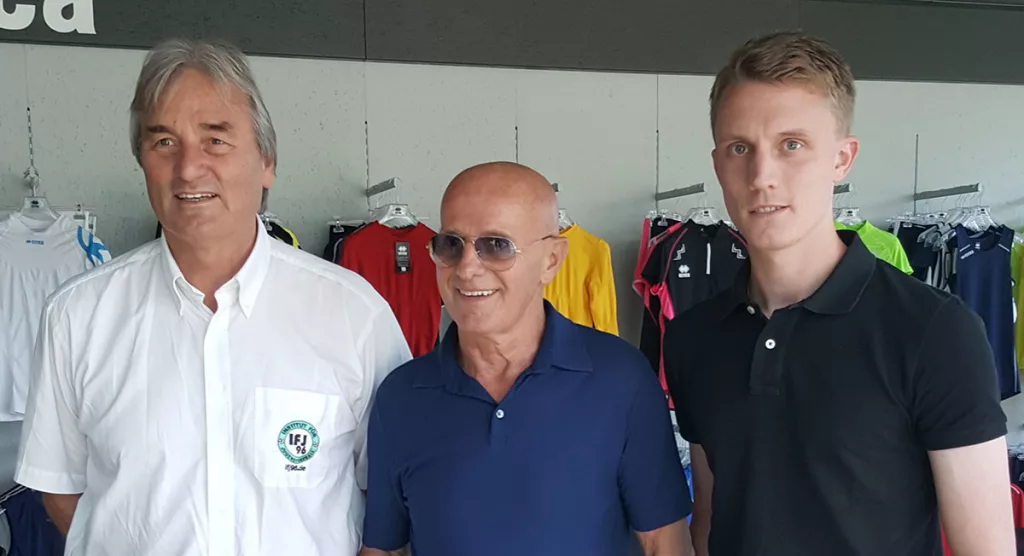
SC: What advice would you give to someone starting their coaching career?
ST: Especially at the beginning, it’s crucial to try out many things. Experiment with as many exercises and game forms as possible. Consistently reflect on what worked, what didn’t, why it didn’t work, and how it can be adjusted to make it work. Being diligent is one of the key points. It doesn’t mean you have to immerse yourself in soccer for 8 to 10 hours every day. It means that after completing a training session, take an extra 10 minutes to reflect and extract something valuable for yourself. Another tip I can definitely give is to consume as much content as possible. This includes watching games, reading soccer literature, and exploring literature outside of soccer that focuses on personal and professional development.
SC: Thank you very much for the interview!
If you want to know more about coach Steven we recommend the following links. He has also released a coaching online course, which is available at our academy here!
- Coach2 Online Soccer Coaching Academy by Steven Turek and Jonas Stephan
- Online Course by Coach Steven Turek
- Book – Fundamental Attacking Strategies by Steven Turek
- Book – 32 Drills in the Passing-Diamond by Steven Turek
eBook – Fundamental Attacking Strategies

Learn how to efficiently open and use space against deeply defending opponents! With detailed solutions for the build-up, training exercises for all skill levels and emphasis on the right coaching.

